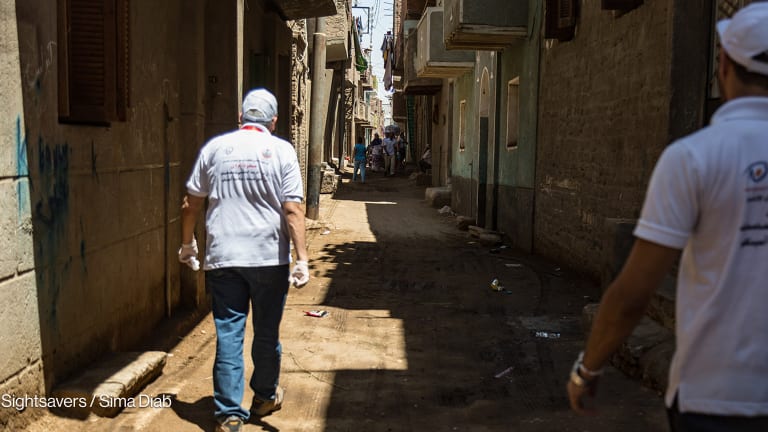Strong leadership, drug donations helped Malawi eliminate elephantiasis

NAIROBI — Just over a decade ago, there were parts of Malawi where nearly 80% of the population was infected by lymphatic filariasis, or LF, a parasitic disease spread by mosquitoes and commonly known as elephantiasis.
This disabling and disfiguring disease causes swelling in the limbs, genitals, and breasts and causes painful attacks which cause the skin to thicken.
Those with severe symptoms “can't do any work; they can't go to the farms, and they can't involve themselves in social activities. They are surviving on support from their family members," said John Chiphwanya, LF elimination program manager at Malawi’s Ministry of Health.
But the country turned this around, recently becoming only the second in sub-Saharan Africa to stop the transmission of the disease, after Togo in 2017.
The World Health Organization attributes Malawi’s success to political will, which allowed it to scale up the distribution of donated drugs very quickly.
Without sufficient funding and political commitment, however, other countries in the region are struggling to move toward elimination.
Malawi’s success
LF affects over 120 million people in 72 countries, located in the tropics and sub-tropics.
In order to achieve a WHO declaration that the disease is eliminated, countries must undergo mass drug administration campaigns. At least 65% of the population in an endemic community needs to take a combination of drugs, once per year, for a number of years. The higher percentage of a population reached — the fewer years required to reach elimination. The country also needs to demonstrate ongoing care for patients living with LF.
How climate change threatens the fight against malaria
WHO estimates that climate change will lead to at least 60,000 more deaths from malaria between 2030 and 2050.
In 1998, Merck, known as MSD outside the U.S. and Canada, began to donate the drug Mectizan for the elimination of LF in African nations and Yemen. This drug is combined with albendazole, donated by GSK.
The key to Malawi’s success is that at the start of the program, the Ministry of Health scaled mass treatments to all endemic areas very rapidly using domestic resources, said Ashok Moloo, a spokesperson for WHO.
That came after a 2008 appeal from Square Mkwanda, former program manager for LF in Malawi, who had access to donated drugs but no money for distribution. "It will be a big shame for us if these drugs expire because we failed to distribute them," he says he told the Minister of Health, prompting the release of funds.
These early successes then attracted more funding from donors. Throughout the six-year campaign, community volunteers delivered the drugs door-to-door and the campaign was advertised on local radio stations, Chiphwanya said. The country was able to achieve drug administration to about 80% of the population in endemic areas.
In 2015, the country underwent post-treatment surveillance to ensure the parasite was suppressed and in October this year, WHO officially declared the elimination of the disease, although there are still patients living with it.
"By reaching this milestone, current patients have access to treatment and will be healthier and have a more productive life and hence break the vicious cycle of disease and poverty and future generations are protected from the disease," said Dr. Yao Sodahlon, director of the Mectizan Donation Program, which led the efforts to eliminate the disease from Togo.
Elimination in sub-Saharan Africa
In Africa, 25 countries are currently working on scaled-up mass drug administration programs, while another five have started these efforts but have not scaled them to all endemic districts. Equatorial Guinea and Gabon are the only two endemic countries that have not yet initiated any mass drug administration efforts.
While there are currently no countries in Africa on track to be validated for elimination next year, Uganda, Mali, Kenya, Sao Tome and Principe, Tanzania, and Zambia are expected to enter post-treatment surveillance by the end of next year, Moloo said.
Key challenges facing other countries are a lack of government commitment and funding to implement the interventions, Sodahlon said. Even with donated medicines, there are costs including training health workers on the distribution of the pills, as well as efforts to create awareness.
Countries are advised to treat neighboring districts simultaneously to avoid the risk of reinfection and are encouraged to engage in cross-border collaboration with neighboring countries, he said.
At a press conference Thursday, Africa CDC Director John Nkengasong stressed the importance of sharing lessons from Malawi’s success with other countries across the continent.
Search for articles
Most Read
- 1
- 2
- 3
- 4
- 5








